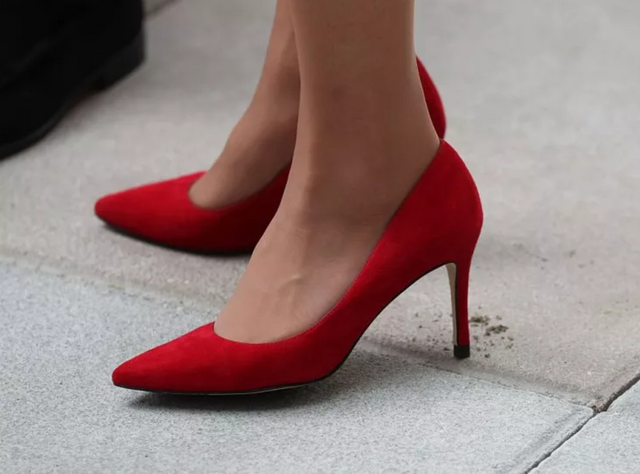Thousands of people are calling on Japan to ban employers from requiring women to wear high heels in the workplace

Japanese women are tired of having to wear uncomfortable high heels to work. And, many are starting to take action in response.
More than 19,000 people have signed an online petition to ban employers from requiring women to wear high heels in the workplace. Actress Yumi Ishikawa, who created the petition after her January tweets about being forced to wear the footwear went viral, submitted it to the labor ministry this week, according to The New York Times.
Similar policies have been enacted in the Philippines and British Columbia.
Ishikawa ultimately switched careers after being required by her employer to stand in high heels for eight hours during a training. She started the hashtag #KuToo (a combination of the Japanese words for shoe (kutsu) and pain (kutsuu), as the movement gained traction, the Times noted. Many women have since used the hashtag to discuss their own experiences.
"I'm hoping to get rid of the custom that someday women have to wear heels and pumps at work," Ishikawa wrote on Twitter.
An official at Japan's Ministry of Health, Labor and Welfare's employment opportunity division told CNN that it doesn't plan to change rules about employers requiring certain dress codes. The official added that men are also impacted because they are often required to wear ties and leather shoes.
But, Shino Naito, vice senior researcher at the Japan Institute for Labor Policy and Training, told the Times that a requirement to wear high heels could be viewed as gender harassment. Japanese law doesn't have an exact definition on that term.
"Expecting or imposing a feminine standard at the workplace is the issue here," Naito said.
Japan struggles with gender equality, ranking 110 out of 149 countries in the World Economic Forum's 2018 Global Gender Gap report, which measures countries on their progress toward gender parity. The five lowest ranking countries in the report include Chad, Syria, Iraq, Pakistan, and Yemen. Iceland is the top ranked country for gender equality, and the United States comes in at 51.
"Women don't even realize they are risking themselves, as this style has been deeply rooted in the work culture," Ishikawa told the Times. "We should take this situation more seriously."
In response to lack of women in the workforce, Japanese Prime Minister Shinzo Abe introduced a plan called "Womenomics" in 2013 to encourage gender equality and challenge issues like pay disparity and gender stereotypes.
But, as noted by Catherine Powell and Rebecca Hughes in Fortune, "though Japanese women's labor force participation has increased, women are overrepresented in part-time work—with lower pay, worse benefits, and limited career prospects. Japan must not only increase the number of women in the formal labor force, but also ensure that women are able to participate on equal terms."
Source: Business Insider.
Posted using Partiko Android
Congratulations @aliminiumoutcome! You have completed the following achievement on the Steem blockchain and have been rewarded with new badge(s) :
You can view your badges on your Steem Board and compare to others on the Steem Ranking
If you no longer want to receive notifications, reply to this comment with the word
STOPVote for @Steemitboard as a witness to get one more award and increased upvotes!
red shou beautiful
Posted using Partiko Android